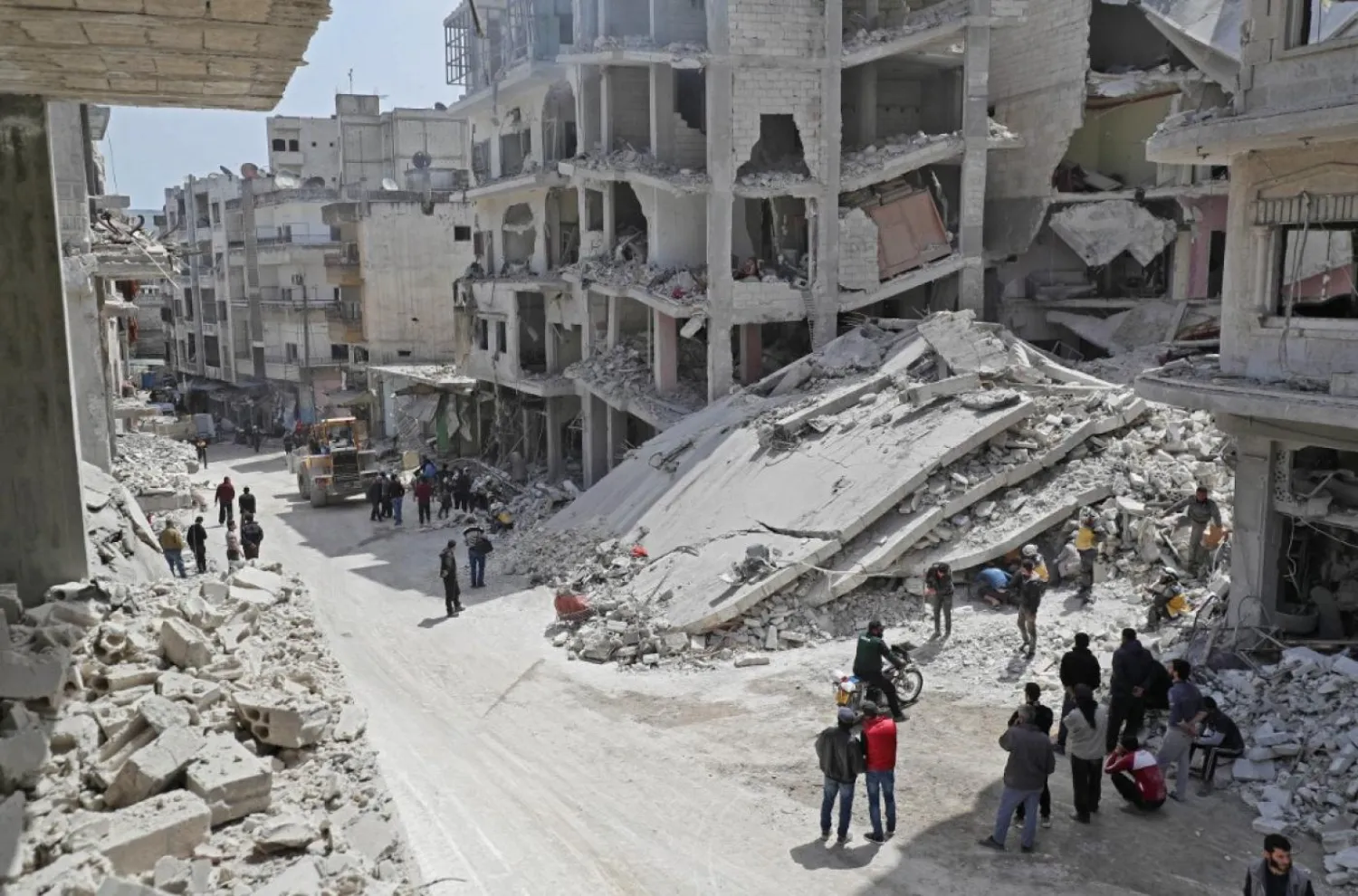Sixteen civilians were among 19 people killed Monday in a Russian air strike on a busy market in northwest Syria, the Syrian Observatory for Human Rights said, in the latest violence to plague the opposition bastion.
At least 45 other people were wounded in the air raid that hit "a wholesale vegetable market in the town of Maaret al-Numan" in Idlib province, the monitor said.
The death toll could still rise as many of those wounded are in a critical condition and some people are still trapped under rubble, it added.
Observatory head Rami Abdelrahman said 16 of those killed were civilians while three other bodies remain to be identified.
However, Russia's defense ministry denied reports that it was responsible for the air strike.
"The statements of anonymous representatives of the White Helmets organization financed by Britain and the US about an alleged strike by Russian planes on a market in Maaret al-Numan are fake," said a defense ministry statement quoted by TASS state news agency.
The latest strike comes one day after air raids by Damascus and its Russian ally on the opposition-run Idlib region killed 18 people, including a young citizen journalist.
Anas al-Dyab, a photographer and videographer in his early 20s, was a member of the White Helmets rescue group who also contributed to AFP.
He was killed in Russian air strikes in his hometown of Khan Sheikhoun on Sunday, rescuers and the Observatory said.
The Damascus regime and Moscow have stepped up their deadly bombardment of Idlib since late April, despite a September buffer zone deal to protect the region of some three million people from a massive military assault.
The spike in violence has killed more than 650 civilians, caused tens of thousands to flee there homes, and damaged or knocked out of service two dozen health facilities.









